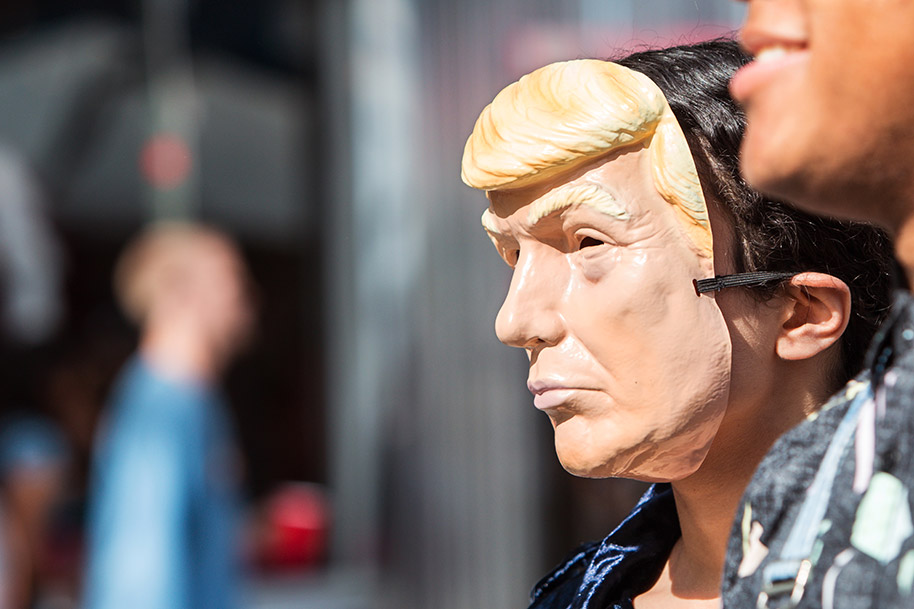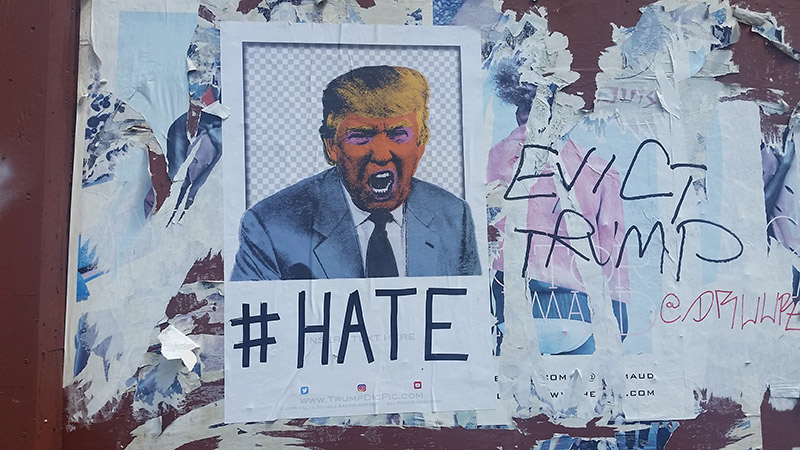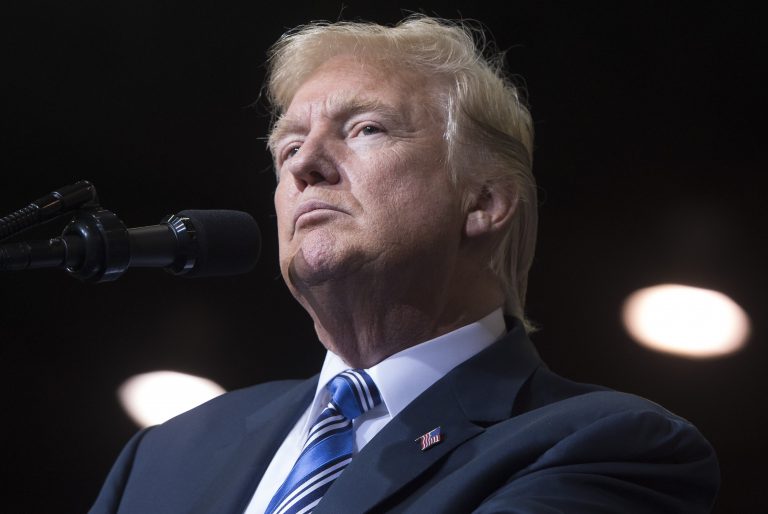Hard and Soft: Competing against the administrative state.
Trump’s Manliness

Breaking Bad: The kindler, gentler days are over.
Three years ago, Donald Trump kicked off the most improbably successful presidential campaign in American history. Since then, he has received more media coverage than the Apollo Lunar landing. It took a category four hurricane to detract attention from him for the first time last fall — and that only lasted a few days.
One would think, at this point, that everything that could possibly be said about the man has been written, tweeted, or broadcasted. But very little has been said about his virtues. Most commentators would in fact recoil in horror at the suggestion that Trump — “a guy who gets up every morning and excretes the feces of his moral depravity into a nation he has turned into a psychic commode” in Michael Eric Dyson’s carefully worded assessment — might possess any qualities of soul.
In his thoughtful essay, Charles Kesler eschews the silly caricature of Trump and has the temerity to discuss his virtues. He astutely singles out the “two conspicuous virtues that his Republican opponents, and Hillary Clinton too, lacked”: his sense of humor and his courage.
It is a testimony to the sanctimonious humorlessness of our elites that they still don’t find Trump funny. He has an undeniable knack for coming up with catchy, biting nicknames. No amount of Red Bull will ever help poor Jeb shed his “Low Energy” moniker. And who can hear Elizabeth Warren’s name and not think of Pocahontas? (Trump didn’t coin that one, but he definitely made it stick).
Though the political value of a sense of humor is considerably underappreciated, it is not, at the end of day, a great virtue. Courage is though. And here Kesler does not fully give Trump his due. He only ascribes to him “a kind of courage in defense of one’s own.” Trump, in fact, is manly. And it is his manliness, more so than his other qualities, his fame or his views that accounts for his popularity and his success — and makes up for his shortcomings and missteps.
Trump’s manliness is not that of a soldier who risks his life in combat or of a general who leads men into battle. In this regard, he is not as manly as his Secretary of Defense General Jim Mattis. Trump’s manliness is that of a man who is not afraid to say out loud what others only whisper and to incur the wrath of the ruling class for doing so. Trump is more manly than Mattis in this regard (and to almost any politician in recent memory, for that matter: if Mitt Romney had displayed half of Trump’s courage in 2012, he probably would have been President).
We all know what we are not allowed to say in America. Every week brings a reminder of what happens to those who deviate from the accepted script when speaking of any of the Left’s protected identity groups. The state, it is true, does not criminalize hate speech, but public opinion does censor it. Heretics are not imprisoned — they are fired, disgraced and declared untouchable.
As a result, deliberation on the great political questions of the day is severely curtailed. Discussion still occurs, but it can only take place within the restricted confines of political correctness. The fear of being called a racist, a sexist, or a bigot, keeps most people in line, thereby allowing the elites to impose their agenda on the rest of the country.
Nowhere is this more readily apparent than on immigration, arguably the most important issue confronting America. Since we opened up immigration in 1965, some 60 million people have come to our shores. This represents the largest recorded migration in human history.
Americans consistently favor lower levels of immigration and demand stricter enforcement of our immigration laws. Our elites, however, want something approximating open borders. And so the reasonable concerns of the American people are maligned and their motives impugned.
Not surprisingly, immigration has been Trump’s signature issue. He not only says what he isn’t supposed to say — “When Mexico sends its people, they’re not sending their best” — he doesn’t back down when the elites unleash their fury against him for saying it. In fact, he usually doubles down — “Mexico is forcing people in that they don’t want, and they want us to take care of those people.”
By challenging the reigning consensus on immigration and not bowing to the pressure to recant, Trump teaches his countrymen a lesson in courage. Americans see in Trump a man willing to take on the elites who scorn them and to not only withstand their attacks but to fight back — often successfully. Trump doesn’t just punch — as he likes to say, he counterpunches.
There’s truth in what Trump’s detractors never tire of pointing out: he can be rather thin-skinned when dealing with petty insults, innuendoes, and accusations. A greater man would not pay as much attention to the nattering nabobs of NeverTrumpism.
Yet, when it counts, Trump has the thickest rhinoceros’s hide of any politician within living memory. He withstands attacks from all sides — the Left, the Right, the press, world leaders — to defend what he thinks is America’s best interest. It is to his great credit that Trump has as much contempt for elite opinion as the elites have for popular opinion.
Many conservatives — to say nothing of almost all liberals — find Trump’s manly combativeness off-putting. They would prefer a President who was more mild-mannered. They seem to want not a manly man, but a gentle — maybe even genteel — man. Perhaps someone like Jeb “illegal immigration is an act of love” Bush, who recently said: “I love policy. I love my country. But this political environment right now, I’m not suited for. To be honest with you. I’m a fish out of water. I can’t imagine having to attack someone to make yourself look strong.”
Donald Trump loves this country as much as anyone else. But he understands what Bush and other excessively cerebral conservatives fail to grasp: we are not having a policy debate with the Left and the ruling class. We’re in the midst of an all-out bar brawl. We’re fighting to preserve what’s left of our country. And since the other side isn’t hewing to the Marquess of Queensbury rules, neither should we.
The American Mind presents a range of perspectives. Views are writers’ own and do not necessarily represent those of The Claremont Institute.
The American Mind is a publication of the Claremont Institute, a non-profit 501(c)(3) organization, dedicated to restoring the principles of the American Founding to their rightful, preeminent authority in our national life. Interested in supporting our work? Gifts to the Claremont Institute are tax-deductible.
Breaking Bad: What David Azerrad Gets Wrong about Trump and Manliness.
In Search of Populism: The ruling class ignored the people; the people struck back.
Kesler's "Thinking About Trump" essay explained then why the NeverTrump right is finished now.
The substance of Trump's Constitutional vices.
American Greatness and the Claremont Institute are leading a renaissance on the Right.






